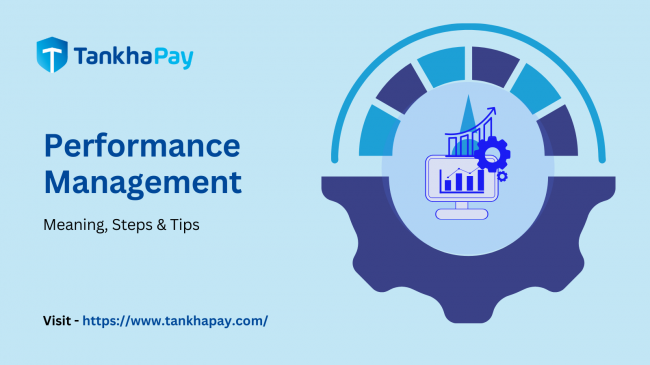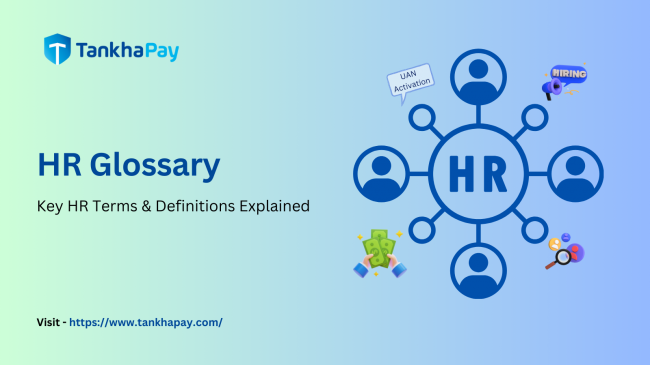The Human Resources function is the backbone of organizational success within the intricate tapestry of modern businesses. The employees are crucial pillars of any successful organization, significantly influencing its trajectory and culture. This critical process of bringing in new talent marks a defining moment that shapes the company’s direction and ethos.
Definition of Human Resources (HR)?
Human Resources is primarily defined as strategically managing an organization’s workforce. Within any organization, HR holds a crucial role in securing, developing, promoting, and providing support to the right talent necessary to accomplish organizational goals.
HR professionals take charge of effectively recruiting, training, managing, and supporting an organization’s human capital. Proper management of human resources departments not only boosts employee satisfaction but also propels a company’s business objectives forward.
Additionally, in most companies, HR is also responsible for fostering the professional development, safety, and morale of each staff member during their employment tenure.
What role does Human Resources play?
Actively overseeing the entire employee lifecycle. This holistic approach involves devising strategies for payroll, administering benefits, fostering a positive workplace culture, boosting employee productivity, managing relationships between employer and employee, and handling terminations.
Employee related Tasks
The Human Resources (hr) department is responsible for recruiting, hiring, and assigning employees and handles administrative duties such as creating work policies, setting salaries, and ensuring prompt payment to all employees.
Promote organizational goals
HR plays a crucial role within any organization by securing, nurturing, promoting, and supporting the right talent to drive organizational objectives forward. HR aligns the organization's business objectives with employees' needs and aspirations, leveraging their capabilities to propel organizational success. This is achieved through identifying skills gaps, designing L&D programs, and implementing performance management systems.
Through workforce planning, talent management, succession planning, and applying other HR best practices, HR professionals ensure the organization possesses the necessary talent to sustain operations and achieve long-term goals.
Ensuring Legal Compliance
Human Resources also implements essential company policies and regulations, such as ensuring compliance with the Equal Employment Opportunity (EEO) and GDPR. They need to stay up-to-date with changes in legal legislation and research new HR trends that will keep the organization running smoothly.

Goals of HR
HR plays a critical role in securing, nurturing, promoting, and supporting the right talent that can help in achieving the organizational objectives.
Through workforce planning, talent management, succession planning, and applying other HR best practices, HR professionals ensure the organization possesses the required talent to sustain operations and achieve long-term goals.
Some of the other goals under the purview of the human resources department include:
Containing costs:
HR ensures that they can find the right candidate within the budget allotted by management.
Keeping turnover low:
Lowering employee turnover is a critical task that falls in the purview of the HR department, considering that employee turnover is costly and replacing a former worker incurs a cost one-and-a-half times their annual salary. This expense can escalate rapidly when turnover rates are high, thus adding significantly to company expenses.
Fostering a comfortable to workplace:
Most organizations want top talent and have people eager to work there. Since the advent of social media and the ease of spreading reviews within mere moments, it becomes imperative for HR to do everything viable to create a healthy workplace environment to maintain the company’s brand image in the industry, maintain a good reputation and minimize negative reviews to maintain a positive employee Net Promoter Score (NPS).
Avoiding legal complications:
To minimize costs and protect the company's image, senior executives often task HR with promoting a culture that discourages formal complaints. When a problem arises, HR makes haste to defuse harassment claims, discrimination charges and other issues before they wind up in court. If the company has organized labour contracts, another goal of the HR department is to prevent union grievances and mitigate employee dissatisfaction.
What Is Human Resource Management?
Human resource management (HRM) refers to the efficient management of a company's employees to achieve goals. This includes overseeing all human resources-related functions, including recruiting, training, payroll, employee engagement, promotion, and retention.
The objective of HRM is to develop and manage various programs to increase the efficiency of an organization. It involves creating and implementing programs to improve organizational effectiveness and maintain healthy relationships between employers and employees.
Objectives of Human Resource Management
There are four key categories in which we can distinctly place the HRM roles:
Social Objectives
The ethical and social responsibilities of companies evolve in response to the changing social environment. Each company must implement measures that cater to both the social needs of employees and the organization. These obligations also encompass legal requirements, like providing equal opportunities and equal pay for the same work.
Organization’s Objectives
HR actively performs various tasks aimed at enhancing organizational efficiency. These include hiring, training, offering refresher courses, and ensuring employee retention.
Business Objectives
This category involves allocating the right human resources, tools, technologies, space, materials, and financial budgets to different verticals. The aim is to ensure the business operates at its full potential.
Personal Objectives
Within any organization, employees pursue their individual goals. HRM achieves its personnel objectives by providing the right opportunities, supporting career development and skill enhancement, and ensuring employee satisfaction through various employee-centric programs.
Human Resources Best Practices
HR departments have changed their focus from the future of work to the present. Organizations that integrate HR best practices observe enhanced morale, productivity, and employee retention. However, enduring core human resource best practices have remained amid this transformation, serving as guiding principles for HR professionals. Companies that adopt these practices witness enhanced morale, increased productivity, and excellent employee retention.
These practices constitute strategic operations, serving as the cornerstone of employee management while aligning seamlessly with the organization’s business plan. HR activities implement strategies regulated by these practices, ensuring their effective application daily.
Some of the best HR practices that can keep employees motivated and productive are listed as follows:
Providing security to employees
Ensuring job security for employees stands as the foremost best practice in Human Resources. Work, being a stable factor amid life’s unpredictability, holds significant importance for most individuals. It’s the primary reason why people choose to work – having an employer that enables them to support themselves and their families.
The concept of employment security enables employees to provide for their families after work, a foundational aspect that influences much of HR’s initiatives. Additionally, it aids organizations in retaining their talent pool. Without actively working on retention, organizations risk losing their employees to competitors.
Selective hiring: Hiring the right people
The second best practice in HR involves selective hiring, allowing organizations to onboard employees who make substantial contributions. Hiring just anyone isn’t the goal; the focus is on individuals who perfectly fit the job description. Companies strive to recruit outstanding individuals as they bring immense value to the business. Moreover, establishing a structured and equitable selection process is crucial. This approach significantly benefits in comprehending broader consumer behaviour and the diverse needs of customers.
Self-managed and effective teams
We acknowledge the paramount role of collaborative effort in attaining objectives. The presence of high-performing teams is imperative for the prosperity of any organization. By amalgamating individuals with diverse perspectives and methodologies, teams substantiate their worth as they strive towards a shared goal. This multiplicity of viewpoints engenders a profusion of concepts which, upon amalgamation and scrutiny, yield the identification of the most exemplary ones.
The most effective teams exhibit cognitive diversity and foster psychological safety among members. This environment allows for the free flow of diverse ideas and comfortable discussions. HR holds the responsibility of establishing and nurturing such high-performance teams.
Fair and performance-based compensation
The fourth best practice in Human Resources revolves around contingent compensation, specifically in the realm of compensation and benefits. When you bring in the right individuals, the aim is to offer them compensation above the average. These exceptional contributors bring immense value to your company, and it’s crucial to retain and fairly remunerate them.
Offering compensation above the standard level does come with potential drawbacks. It might dissuade under performing employees from leaving. Nonetheless, if your consistent hires are top-notch performers, providing above-average compensation becomes imperative.
Training in relevant skills
According to this HR best practice, companies should heavily invest in employee training, both in time and budget. Once you’ve recruited top talent, it’s crucial to ensure they stay ahead in their field. This holds even more significance today due to the exponential growth of technology. This is where learning and development play a pivotal role.
Conclusion
In the intricate web of contemporary enterprises, human resources assumes a crucial role as the integral force harmonizing individual aspirations with organizational strategic imperatives. Amidst the fluid dynamics of the contemporary work landscape, one truth endures the pivotal significance of human resources in cultivating a workplace conducive to talent development, innovation stimulation, and pervasive inclusivity. Through the adoption of adaptability, empathy, and forward-looking methodologies, human resource professionals hold the capacity to not only mould corporate entities but also to shape the very essence of future work paradigms.
















